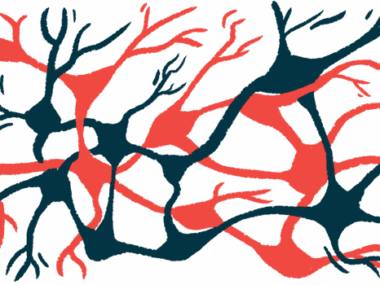First group of healthy volunteers dosed in QRL-101 MAD study
About 60 participants are expected to enroll in Phase 1 clinical trial
Written by |

Quralis has completed dosing in the first group of healthy adults who volunteered for its Phase 1 clinical trial of QRL-101, an experimental oral small molecule being developed for amyotrophic lateral sclerosis (ALS).
QRL-101-03 (NCT06532396) is expected to enroll about 60 volunteers who’ll be divided into five groups and randomly assigned to either QRL-101 or a placebo. Each group will receive an increasing dose of QRL-101 over multiple days. The goal is to test how safe and well tolerated multiple doses of QRL-101 are, along with its phamacokinetics, that is, how it moves into, through, and out of the body.
The dose range selected for this multiple ascending dose (MAD) trial was determined by results from QRL-101-01 (NCT05667779), a completed Phase 1 single ascending dose (SAD) trial during which no safety concerns were reported with single doses of QRL-101 among 88 healthy participants.
“We are excited to complete dosing of our first participant cohort in our Phase 1 MAD clinical trial of QRL-101,” Doug Williamson, MD, Quralis’ chief medical officer, said in a company news release. “In the SAD study, QRL-101 was shown to be well tolerated, with no significant safety concerns or serious adverse events.”
What is QRL-101?
Results from the trial are expected in early 2025 and will help plan larger global clinical trials to test QRL-101 in people with ALS, according to the company.
ALS occurs as a result of damage to motor neurons, the nerve cells in the brain and spinal cord that control movement. In about half of patients, motor neurons are prone to fire electrical signals more readily than normal, a phenomenon known as hyperexcitability, leading to their death. QRL-101 is designed to open so-called Kv7.2/7.3 voltage-gated potassium channels, a type of protein that controls neuronal excitability. By acting on these channels, QRL-101 should ease hyperexcitability, slowing motor neuron damage and the progression of symptoms.
Preclinical research in patient-derived motor neurons and animal models showed QRL-101 can activate these ion channels, but its greater selectivity resulted in a much better safety profile than previous Kv7.2/7.3 activators.
“QRL-101, is a highly selective Kv7.2/7.3 ion channel opener, which in preclinical models shows a strong potential to control motor neuron hyperexcitability-induced neurodegeneration with an attractive side effect profile,” said Leonard H. van den Berg, MD, PhD, who chairs the Treatment Research Initiative to Cure ALS (TRICALS), the largest European research initiative working on a cure for ALS.
Said Williamson: “QRL-101 has the potential to be a first-in-class effective therapy for ALS patients suffering from hyperexcitability-induced motor neuron degeneration. We look forward to advancing the clinical program for QRL-101 so Quralis can bring much-needed therapies to people living with ALS.”






